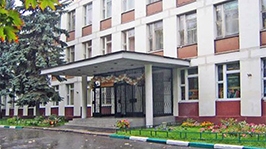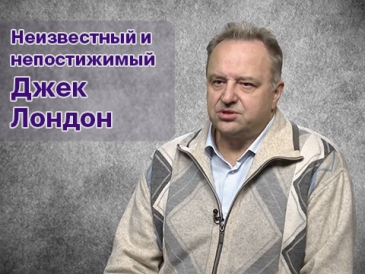Неэргодическая экономика
Авторский аналитический Интернет-журнал
Изучение широкого спектра проблем экономики

«Олимпийский» образовательный рейтинг регионов России
Представленный рейтинг субъектов РФ по итогам заключительного этапа Всероссийской олимпиады школьников является авторской разработкой, выполненной исследовательским коллективом при финансовой поддержке Российского гуманитарного научного фонда (проект №12-32-01054). Авторский коллектив проекта: руководитель проекта – Екимова Наталья Александровна, исполнители – Дроздова Анастасия Александровна, Дудуева Диана Сергеевна, Шаврова Юлия Сергеевна
| Разработчик | Федеральное Интернет-издание «Капитал страны» |
| Дата создания | 2010 |
| Периодичность | Ежегодно |
| Источник | Капитал страны |
| Индекс доверия | 16.1 |
| Число респондентов | 118 |
| Информация об исследованиях | Логика построения рейтинга базируется на том, что позиция субъекта РФ в рейтинге определяется численностью победителей/призеров во Всероссийской олимпиаде школьников, приходящихся на 1 тыс. обучающихся в общеобразовательных учреждениях региона.
Для проведения прикладных расчетов использовались данные, представленные на портале Всероссийской олимпиады школьников в г. Москве - http://vos.olimpiada.ru/, портале Всероссийской олимпиады школьников - http://www.rosolymp.ru/, а также на официальном сайте Федеральной службы государственной статистики - http://www.gks.ru/.
В рейтинге представлены субъекты РФ, в которых в рассматриваемый период были победители/призеры Всероссийской олимпиады школьников. |
РЕЗУЛЬТАТЫ ИССЛЕДОВАНИЯ:
| Период | Методология | Рейтинг |
|---|---|---|
| 2010-2011 | Открыть | Открыть |
| 2011-2012 | Открыть | Открыть |
| 2012-2013 | Открыть | Открыть |
| 2013-2014 | Открыть | Открыть |
| 2014-2015 | Открыть | Открыть |
| 2015-2016 | Открыть | Открыть |
6343
3
22.08.2015
Добавить комментарий:
|
|
|
| Ваше имя: | |
Публикации
Развитие России во многом определяется решением демографического вызова, игнорирование которого может создать в долгосрочной перспективе экзистенциальную угрозу существованию страны. Именно поэтому демографический вопрос определен как стратегический приоритет России на ближайшие десятилетия. К числу наиболее амбициозных перспектив увеличения численности населения России относится заявление лидера ЛДПР Л. Слуцкого, обозначившего необходимость двукратного его увеличения в ближайшие 50 лет. Построенная в работе модель демографического роста в России позволила определить факторы, влияющие на рождаемость в стране, и рассчитать их целевые значения, необходимые для достижения цели по двукратному увеличению численности. Одним из факторов, влияющих на повышение рождаемости, является коэффициент соотношения браков и разводов, значение которого за последнее десятилетие сократилось почти в 1,5 раза. Демографическая экспансия требует почти двукратного его наращивания, что подразумевает серьезную работу по укреплению семьи и формированию образа многодетной семьи как нормы жизни общества. В настоящее время Правительством РФ активно проводится работа в направлении материальных и социальных аспектов демографической проблемы, что позволяет в краткосрочном моменте решать многие вопросы демографического вызова. Однако для формирования устойчивого роста населения в стране необходима работа с сознанием населения, ориентированная на долгосрочный горизонт планирования. В качестве мер, направленных на укрепление семьи с целью снижения количества разводов и формирования семейных ценностей как залога будущего России, в статье рассмотрены предложения по созданию и развитию Центров психологической поддержки семьи, популяризации образа семьи и многодетности и формированию семейноцентричного государства.
12.07.2025
В статье предлагается концептуальная модель долгосрочного развития России, адекватная новым вызовам и проблемам. Методологической основой исследования является процедура системной сборки отдельных элементов долгосрочной политики в единое непротиворечивое целое, обладающее синергетическим свойством. В основу модели развития заложено три фундаментальных сквозных принципа, которые пронизывают все звенья экономической системы: эффект масштаба; принцип согласованности; расширенную модель успеха страны. Сквозные принципы не только упорядочивают стратегию развития государства, но и обозначают его конкурентные преимущества и способы достижения поставленных целей. Структура концептуальной модели развития России включает теоретический блок, состоящий из государственной идеологии, и функциональный блок, включающий такие разделы, как демография, экономика и технологии. В свою очередь блок идеологии предполагает новую государственную идеологию и определение экономического строя страны. Блок демографии предусматривает три ключевых элемента: специальную демографическую операцию для обеспечения переходного периода к демографической экспансии; демографическую экспансию на основе комплексных реформ институтов, экономики и культуры; миграционный контроль для сохранения национальной идентичности. Блок экономики включает следующие разделы: обеспечение антихрупкости экономики; многоуровневую систему селективного управления экономики; внедрение модели народного капитализма. Блок технологий подразумевает разделы: технологический рывок на существующей производственной базе; монетарные стимулы для новых производств; масштабную технологическую диффузию. Обосновывается тезис, что реализация предложенной стратегии развития позволит решить многие проблемы, в том числе те, которые не удавалось решить на протяжении предыдущего периода существования страны.
12.07.2025
В статье проведён всесторонний анализ экономической политики администрации Дональда Трампа, обозначенной термином «трампономика». Основное внимание уделено ключевым аспектам её реализации в условиях глобальных экономических трансформаций. Рассматривается влияние протекционистской направленности политики на международные торговые отношения, включая последствия введения тарифных ограничений и пересмотра торговых соглашений. Авторы выявляют закономерности в действиях администрации Трампа, которые способствовали как росту отдельных высокотехнологичных отраслей, так и углублению структурных дисбалансов в американской экономике. Особое место в работе занимает анализ неомеркантилистских подходов, характерных для внешнеэкономического курса администрации, и их долгосрочные последствия для мировой торговли. В статье также рассматриваются институциональные преобразования, направленные на усиление национальной безопасности США и перераспределение ресурсов в пользу внутренних рынков. Авторы сопоставляют реализованные подходы с традиционными неолиберальными стратегиями, выделяя ключевые различия в их долгосрочных последствиях для экономического роста. Представлен сравнительный анализ трампономики и альтернативных экономических доктрин, таких как байденомика, что позволяет оценить влияние политико–экономических факторов на формирование национальной стратегии. Полученные результаты обобщают опыт США в условиях глобальных вызовов и могут быть полезны для стран, стремящихся адаптировать свои экономические модели. Статья предлагает перспективные направления для дальнейших исследований, включая изучение новых форм протекционизма и их роль в преодолении структурных дисбалансов мировой экономики. Научный интерес представляет рассмотрение взаимосвязи между политическими целями и экономической стратегией США в период 2016–2020 годов, а также её влияния на формирование новой глобальной парадигмы. Полученные результаты могут быть использованы для оценки аналогичных экономических курсов в других странах.
08.07.2025
Видео
События
Аналитики Финансового университета обнародовали Рейтинг университетов мирового класса – 2021 / 19 мая
Аналитики Финансового университета представили Рейтинг ведущих экономических журналов России – 2021 / 19 мая
Сотрудники Финансового университета на конференции «Журнала Новой экономической ассоциации» представили новый Рейтинг российских экономических журналов / 13 мая








